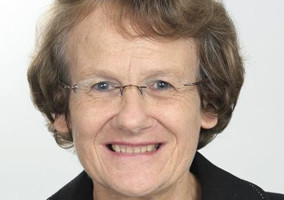In order to benefit from the advice and services of a financial adviser, or indeed to simply meet the standard set by CC14, charities need to start with an investment policy. This policy requires of trustees a robust engagement and necessary decisions on income requirements, an acceptable level of risk and appreciation of its future development and liquidity needs.
Many charities are looking to financial advisers to provide a path through uncertain times, with political and financial upheaval all too frequent.
As a charity, it’s vital you have support once you’ve made the decision to earn an income or growth through investing. Whether you’re a seasoned investor, or new to the world of investments, a good adviser will provide valuable guidance to help you plan and manage your charity’s portfolio. But what makes an effective adviser?
What type of adviser?
Ultimately, it’ll come down to finding someone who’ll help deliver your charity’s mission and support your brand and investment objectives. You must be able to work with them and build an open rapport. This may depend on their level of experience and whether they understand your charity’s needs, but also depends on how you feel about them and the organisation they work for. We’d recommend you carry out some research to find out about their reputation and qualifications.
Different types of advisers perform different roles – take an Investment Manager and a Financial Planner, as examples – so it’s important to understand what each adviser can offer and how that fits with your charity’s needs.
An Investment Manager usually has the autonomy to act on behalf of your charity and manage your investments in line with your investment policy and objectives.
A legal agreement is essential when using an investment manager with discretion, to ensure that they make the right decisions, provide some accountability and keep you appraised of performance and opportunities.
“It’s important to understand what each adviser can offer and how that fits with your charity’s needs.”
Investment consultants provide investment advice, products and planning while your charity remains in control of when and how to invest. If you choose to take their advice, you can instruct them to make the transactions – or do it yourself. It’s unusual for a consultant to act on a discretionary basis in the same way that an Investment Manager does.
Financial Planners look at your charity’s cash flow and its future plans, and tailor a plan to reflect your objectives.
They’ll make predictions based on income from regular sources and expected growth rates while taking into account your plans for the short, medium and longer-term.
Trustee board member
CC14 also makes reference to the option of a fellow trustee with suitable investment experience and ability to provide guidance. The emphasis here should always be on impartiality.
What criteria are important?
When comparing advisers, you could consider criteria such as fees and charges, whether they specialise in certain funds and how they’ll support you to meet your charity’s long-term investment objectives.
Where should you look?
CAF Financial Solutions Ltd does not provide financial advice. However, there are several sources online that list advisers specifically for charities. Visit our page to find examples.
What to check
Qualifications – Advisers should be authorised and regulated by the Financial Conduct Authority (FCA) and all Financial Advisers must hold a QCF Level 4.
How they’re paid – Check if they are paid on commission or earn fees. Find out about how these are calculated.
Restricted or Independent advisers?
There are two types of advice available from investment advisers.
Independent advisers can provide unbiased and unrestricted advice from across the market place.
Restricted advisers can only offer advice on a limited selection of product and service providers. It’s important to make sure that you understand the difference.
The value of investments may fall as well as rise. You may not get back the full amount that you originally invested. Past performance is not a guide to future performance. There is no guarantee about the level of capital or income returns that will be generated.
David Brown is a senior client relations manager, charities at the Charities Aid Foundation
CAF Financial Solutions Limited (CFSL) is authorised and regulated by the Financial Conduct Authority under registration number 189450. CFSL Registered office is 25 Kings Hill Avenue, Kings Hill, West
Malling, Kent ME19 4TA. Registered under number 2771873. CFSL is a subsidiary of Charities Aid Foundation (registered charity number 268369).
Related articles












